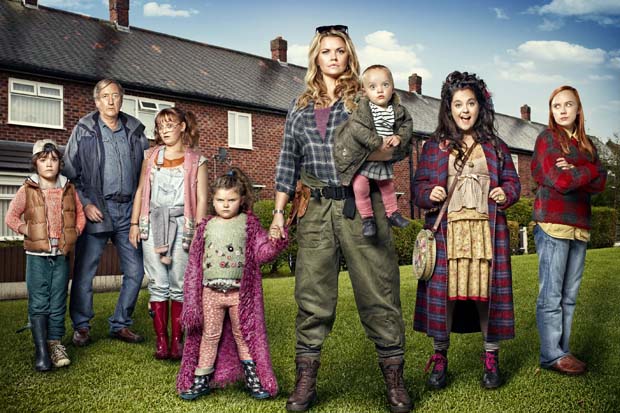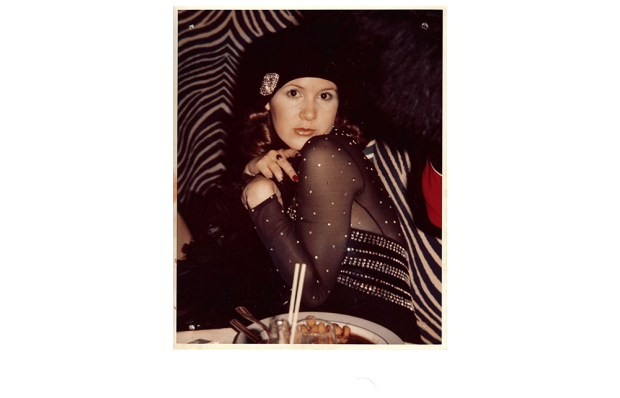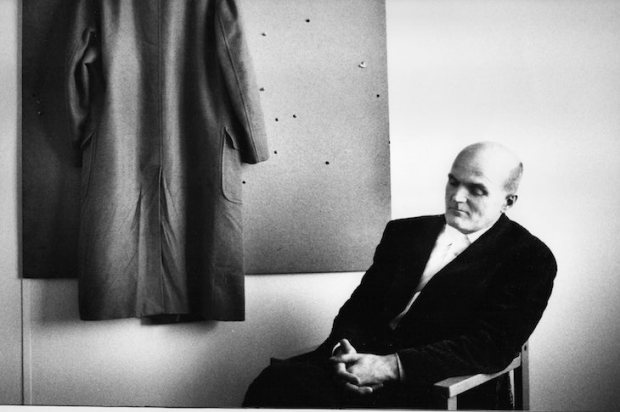Journalist, novelist, broadcaster and figurehead of British feminism Caitlin Moran, who writes most of the Times and even had her Twitter feed included on a list of A-Level set texts, is now bidding to break into the sitcom business. Can one woman shoulder this ever-increasing multimedia load, along with the fawning tide of adulation that follows her everywhere?
Wisely, she enlisted the help of her sister Caroline to create Raised By Wolves (Channel 4, Monday), a wily reimagining of their home-schooled childhood (alongside six siblings) on a Wolverhampton council estate. After a 2013 pilot, it’s back for a six-part series, with the hyperactive, motormouthed Germaine (the fictionalised Caitlin) played by Helen Monks and her caustic, intellectual sister Aretha by Alexa Davies.
Question is, will it reach beyond an audience of teenage girls? This opener was much concerned with sister Yoko (Molly Risker) having her first period, prompting formidable den-mother Della (Rebekah Staton) to march her girls down the ‘Aisle of Shame’ in Boots to load up with feminine hygiene products (‘these are basically a small mattress in your pants’). The writerly sisters also had a bit of fun with menstrually-related movie titles — Crimson Tide, The Hunt for Red October, 28 Days Later etc. — while also high on the agenda were Germaine’s hysterically fizzing hormones and her lust for a local oik called Lee.
Some of the jokes sounded laboriously written-out rather than spontaneously spoken, and blokes are kept firmly in their place — Della’s dad Grampy (Philip Jackson) keeps popping up, but only so we can cringe at his embarrassing macho delusions. But the characters are sharply drawn, and it’s startling to see a portrayal of council-estate life teeming with creative energy rather than drugs and muggings. Especially on Channel 4.
No British drama series ever lasts long enough to have a ‘mid-season break’, but the Batman prequel Gotham (Channel 5, Monday) returned from one this week and was positively zinging with health. This show hasn’t really hit the critical radar so far, but London-born writer/producer Bruno Heller (who also devised The Mentalist) has created a pungently atmospheric incarnation of Gotham City as a sort of sepia-toned, gothicised Manhattan where fantasy and reality interbreed feverishly. The future Batman, Bruce Wayne, is too young to play much of a role, but the series has conjured up its own self-contained world in which a group of squabbling mob bosses and freakish villains are painstakingly policed by upstanding Detective Gordon (Ben McKenzie). Meanwhile, a foul tide of corruption laps at the steps of City Hall.
Perhaps the show’s whimsical ambience has camouflaged its deeper merits, but it’s beginning to feel richer and darker. It would be overstating it to argue that the themes of loyalty, family and betrayal being played out in the Gotham underworld recall The Godfather, but there were a couple of powerfully emotional moments in this comeback double episode that didn’t fall far short. The brutal waterfront execution by gangster Butch of his childhood buddy, while the Fifties doo-wop hit ‘It’s All In The Game’ played on the soundtrack, was one. Then there was the bitter coda where ageing Puccini-loving crime lord Don Falcone (majestically played by John Doman) was forced to accept that he’d been cynically duped by the young woman he’d idolised as a reincarnation of his mother. His retribution was excruciating to witness.
Four years before Enoch Powell’s ‘Rivers of Blood’ speech, the 1964 general election contest for the West Midlands seat of Smethwick had given a disturbing premonition of the kind of racial apocalypse Powell had in mind. Exploiting a vicious groundswell of anti-immigrant sentiment, Conservative candidate Peter Griffiths snatched the seat from the Labour incumbent Patrick Gordon Walker.
As Britain’s Racist Election (Channel 4, Sunday) energetically reminded us, the debate was conducted with a rabid brutality which seems inconceivable today. The campaign notoriously spawned the slogan ‘if you want a nigger for a neighbour, vote Labour’, prompted demands from some white residents for the imposition of localised apartheid, and even triggered the launching of a local branch of the Ku Klux Klan insisting that ‘we must fight the nig-nogs’.
There are two ways of looking at this, though. You could faint with shock that such horrors could take place in the Midlands only 50 years ago and assume that similar attitudes still simmer secretly, or you could marvel at how far the UK (not least Smethwick) has travelled towards a relatively harmonious multiculturalism since then. In fact, Griffiths was robustly condemned at the time by politicians from all sides, and was turfed out of the Smethwick seat only 18 months later. But no doubt the real purpose of this film was to take another swipe at Ukip.
Got something to add? Join the discussion and comment below.
Get 10 issues for just $10
Subscribe to The Spectator Australia today for the next 10 magazine issues, plus full online access, for just $10.
You might disagree with half of it, but you’ll enjoy reading all of it. Try your first month for free, then just $2 a week for the remainder of your first year.












Comments
Don't miss out
Join the conversation with other Spectator Australia readers. Subscribe to leave a comment.
SUBSCRIBEAlready a subscriber? Log in